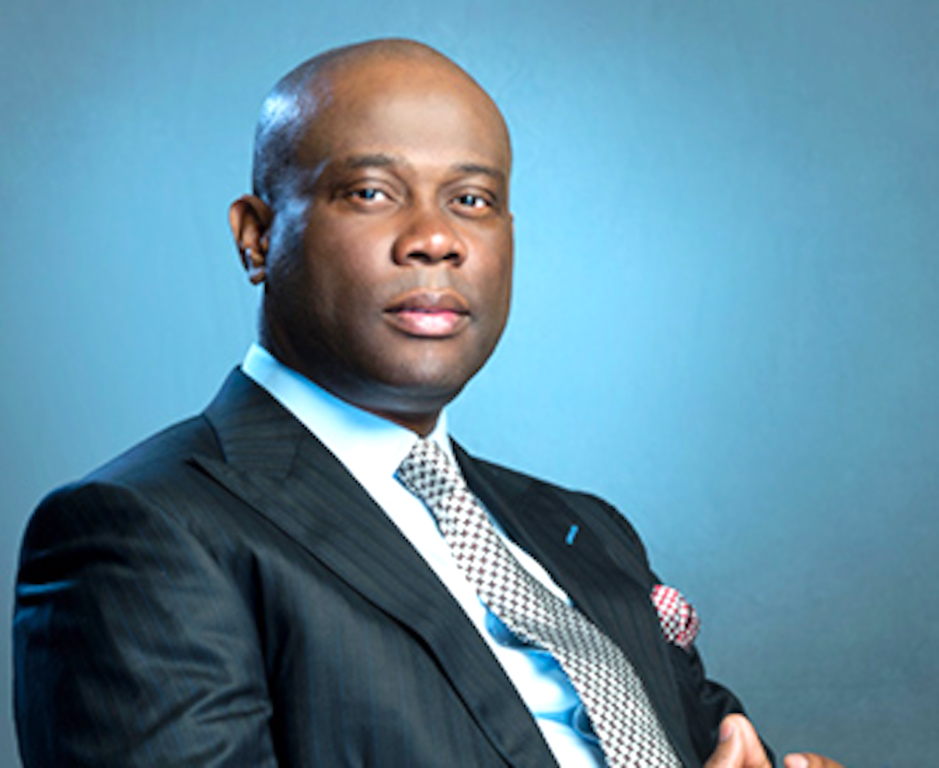Access Holdings; Evaluating the New Corporate Game Plan

Corporate repositioning will come hard and fast in Nigeria’s financial services industry as customers become finicky, impatient, and demanding. The world of best global practices will no longer be a plane flight away but a few keystrokes of either a computer or a mobile phone. Nigerian banks are coming to terms with this gripping reality.
For example, in a play for global economies of scale and scope, improved customer service journeys, and market competitiveness, Access Holdings has set the stage for reimagining its corporate future around what it calls the five verticals.
The Holdco recently unveiled a five-year strategic plan that runs between 2023 and 2027. The group says it intends to push its footprint beyond Africa to other non-African countries such as France, Hongkong, Malta, UAE (Dubai), Lebanon, China, and India (Mumbai). The intercontinental thrust represents a strategic shift from the Afrocentric business concentration over the last five years to a broader global market approach to service delivery.
The approach comes with pains and gains. Analysts point to massive foreign exchange translation considerations that come with intercontinental operations. The Holdco would need to steal, borrow, or groom a team of foreign exchange market specialists that help reduce its multi-jurisdictional currency risks. The giant lender would also have to cope with local peculiarities such as legal, customs, culture, and taxes.
On the flip side, customers of the group would be plugged into a global marketplace where intra-market opportunities become easier to identify and harness. The competitive white spaces emerge and provide the template for ‘blue ocean’ market strategies. Global risk and cost containment approaches enable the financial solution provider to average down operating expenses and leverage superior technology to improve product and service delivery propositions.
However, ‘hope is not a method’ in the words of retired US Army General, Gordon Sullivan, in a book of the same title. If Access Holding is to succeed at its combination of organic and inorganic expansion it must raise the threshold for technical competence and staff retention.
A Day in the Life Cycle of a Behemoth
The Holdco’s strategy contains BHAGs (Big Hairy and Audacious Goals) but how far it goes in meeting the lofty requirements of translating goals into action would depend on the quality of its human assets and its adoption of superior technology. With customer demand evolving on the go, companies must be nimble, pre-emptive, and focused on value creation, buying into converting customers’ pains into solutions or gains. The Access Holding’s international foray raises issues about the institution’s life cycle evolution.
A review of modern corporations shows a shorter life cycle than their predecessors. Longstanding businesses have had shelf lives above one hundred years but they have also shown signs of aging, debilitating corporate reversals and these institutions have been slow on the corporate dance floor. They have shuffled their feet heavily with cash flows rising but turnover and revenues thinning down. But this is not the only problem. Aging organisations tend to have chief executives (CEOs) and management set in their ways and vulnerable to corporate missteps as they are tucked into the comfort of their memories than into the challenges of their imaginations.
Older Nigerian banks have been less nimble than their younger rivals and this has played up in the burden of bureaucracy that has affected their competitive sharpness and technological adaptability (for example this was exemplified in the younger former Standard Trust Bank (STB) acquiring the older incarnation of UBA. It also played out in the younger Access Bank acquiring both Intercontinental Bank and Diamond Bank). As baby boomers retire in larger numbers, older banks will settle into the genteel comfort of yesterday’s heroes (see illustration 1 below).
Illustration 1

Financial supermarkets like Access Holdco are mature institutions that need to stay bright and nimble if they are to grow their competitive presence. The problem here is that the Holdco structure allows founding executives to stay in the boardroom playground for much longer than they may be required. With contemporary organisations having to face compressed corporate life cycles, the transition from one set of corporate executives to another should be faster (it should be stated that Herbert Wigwe only recently, in March 2022, left the bank to head the Holdco). The slower it takes for executives to pass the corporate baton the tougher it is for companies to remain sustainable. The personality of a vibrant founder as a visioner is different from that of a manager required to ensure long-term corporate stability.
Analysts recall that Steve Jobs, the co-founder of Apple, was kicked out of the company’s top job after he had set the tone and texture of a disruptive technology start-up, he was quickly replaced by John Sculley who had a torrid time as CEO. The problems were that at the time of Sculley’s appointment, Apple still needed its chief visioner. The company’s life cycle did not align with the skill sets and temperaments of the new man at the helm. When Jobs was invited back as CEO, Apple again took off at a blistering pace. The reborn boss’s temperament and skills suited the revitalized company’s life cycle phase.
Unfortunately, Jobs died, but at the time of his death, Apple was ready for a new type of CEO, a handyman executive, a man not given to grand designs and exotic experiential product experiments, but a firm hand on the corporate steering wheel and a clear head having a sense of where the company needs to be. Enter current CEO, Tim Cooke. The Apple example can be translated into the requirements of shifts in corporate executives in Nigeria’s frenetic financial industry. In pursuing its vision, Access Holdco may need to equally prepare for an executive transition enabling the realignment of executive orientation and personality to the stage of the behemoth’s corporate life cycle.
The emergence of Herbert Wigwe and his predecessor, Aigboje Aig-Imoukhuede, as bank CEOs, ushered in a new age of disruptive and dynamic financial service delivery in the country. However, with the Holdco snowballing into a global brand, its sustainability may call for a corporate strategy matched by an executive transition programme where Wigwe handholds the group’s next generation of C-Suite barons.
The Journey Continues
Over the years, the Access group has concentrated its expansion plans in Africa, where it has operated in 17 countries with over 52 million retail customers. With its future expansion, the group’s retail customers are expected to grow to 125 million in 2027. Leveraging the large unbanked population in Africa over 60m in Nigeria and 370m in Africa, the group’s target is to become one of the top five banks in the continent by 2027.
The Holdco’s new five-year corporate strategy begins in 2023, and the institution has been deliberate in pursuing a growth model that combines both acquisition and internal resources as enablers of the vision, according to the Wigwe. the group increased total assets by a compound annual growth rate (CAGR) of 18% between 2013 and 2017 and emerged as Nigeria’s largest bank in terms of assets at N13.45trn as of 9-month 2022 from N4.10trn in 2016. Following the transition to a Holdco structure, the bank diversified its operation by establishing five verticals to improve opportunities in its African market (See illustration 2 below).

Across the verticals, the group emphasizes the adoption of a digital support framework. The Holdco plans to adopt a hybrid model of agents and redesign digital channels to drive financial inclusion, grow customer value, and facilitate intra-Africa trade. Hydrogen focuses on delivering integrated payment solutions to financial institutions including FinTech’s and Merchants/SMEs. Oxygen will utilize digital lending for savings and valued added services to retail customers. Pensions will offer an app-based reward system to achieve enhanced pension services and Ancillary services with the aspiration to be the top two pension players in the market. By 2027, the group believes the new verticals will contribute 12% of total revenues and 19% of profitability. Analysts are optimistic about the objectives, but note that the group might still grapple with other difficulties (see illustration 3 below)
Illustration 3

Access in the age of Artificial Intelligence and Machine learning (AI/ML)
Access Holding has embraced the transition to a technology-driven enterprise by applying artificial intelligence and machine learning (AI/ML). The group has launched several digital products such as a Rule-based chatbot called, Tamara, and Ada (adopted from the erstwhile Diamond Bank), an interface that allows customers to perform basic banking transactions, PRIMUS+, internet banking, Mobile banking, and digital solutions. Digital adoption generated an additional N66.28m in 2021 and N49.39m as of 9M, 2022. Although the bank has adopted digital technology in meeting customers’ experiential expectations, there is still a long way to go in making technology adoption a part of the corporate DNA and the customers’ superior journey experience.
As exciting as the digital era might seem, cyber threats/ fraud has fuelled concerns over institutional risks. Cyber fraud has grown to high levels, Nigerian banks lost over N15.5bn to internet fraud in 2018, according to Nigeria Deposit Insurance Commission (NDIC). The Holdco and the bank intend to tackle the challenge by leveraging the AI-ML model to improve the ability to predict high-risk transactions through the deployment of premium automation and real-time dashboards. Analysts are of the opinion that the full integration of technology should improve the group’s earnings, seeing that the group already has a large customer base and retained customer confidence.
To finance the five-year strategy, the bank plans to raise more capital outside of its internal resources. As stated by the CEO of the bank, Mr. Roosevelt Ogbonna, the group has shared the capital plan with the Central Bank of Nigeria (CBN), and would need to work with Development Finance Institution (DFI) partners, as well as international financial markets to raise both senior debt and quasi-equity.
The group has focused on capital building towards future earnings considering the relatively smaller dividend payouts, this might have been the basis for the group’s market price of below N10. The risk associated with expansion might have triggered some investors to view the stock as being at a premium while others are torn between deciding whether it is a growth stock or income-generating stock. However, analysts believe the stock represents a hidden value proposition as against a profit-taking opportunity.
Looking at the group’s board of directors, analysts observe a relative gender imbalance, with six women and 11 men or what represents a feminine representation of 35.3%. According to Proshare’s Bank Strength Index (PBSI), gender mix is an essential determinant of board performance and banks (and their Holdcos) with more gender-diverse boards showed a better return on equity (RoE). With Access Holding’s track record of setting and executing goals, as typified in the last four strategic cycles between 2003 and 2022, analysts are quite optimistic that the group will meet most of its projected financial numbers by cleverly defying economic headwinds in the next half decade(see Table 1

In the general scheme of things, Access Holding will break through the pain barriers of agility and flexibility (see illustration 4 below) and push along a growth curve where innovative thinking will separate winners and losers. With a strategic spring on other banks, the safe bet would be to see the Access group in the rareified community of sustainably profitable global lenders in the next five years.
Illustration 4

Culled from the Proshare




